detail profile s poniman
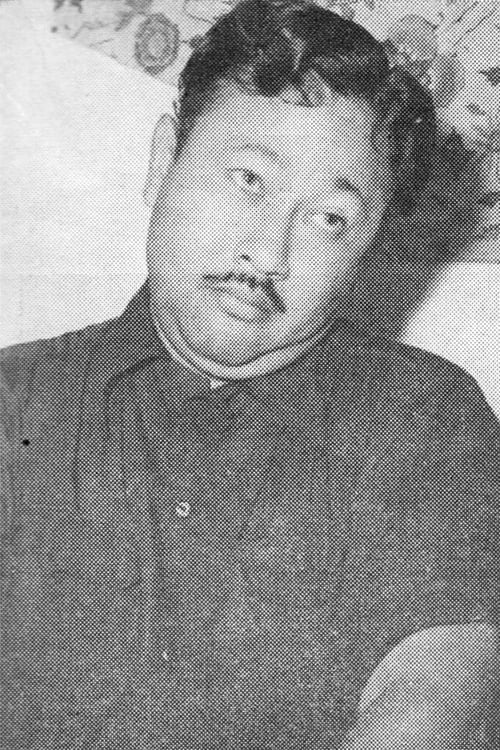
Info Pribadi
Peran Yang Di Mainkan S Poniman
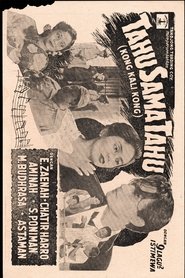 A Sumarna the deputy head of...
A Sumarna the deputy head of...Tahu Sama Tahu 1955
A Sumarna, the deputy head of an office in Jakarta, is suspicious of Karta and several other employees because they live very luxuriously. He asks his boss, Subroto, to investigate and take action against them. Subroto, who feels that he is committing fraud with Karta et al, negotiates to overthrow Sumarna by using Nani, a widow of a dragger. Nani succeeds in taking Surmarna away from his wife, Hayati, and makes Sumarna also commit corruption. Sumarna is arrested and sentenced to five years. Hayati, who is divorced, lives in the village with her child in her parents' house. Because this provides a good education for her child, she returns to Jakarta. She meets Amat, Sumarna's driver, who then invites her to the house of Dul and Mirah, a vegetable seller. Hayati sells rujak. After five years, Sumarna is released from prison, while Subroto et al are sent to prison because their corruption is exposed. When walking in front of Dul's house, Amat recognizes him.
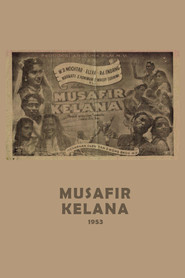 Gurda is a wandering traveler his...
Gurda is a wandering traveler his...Musafir Kelana 1953
Gurda is a wandering traveler, his life is very miserable and forever in sorrow. Fortunately there are also friends who are Duati, Bonto, Binti who always cheer him up. Gurda promised his friends that he would leave the traveler's job and ask her brother's help, was a merchant, but they did not get help. Then the Gurda makes another living by looking for firewood in the forest to sell and the results are used to feed his friends who become travelers. It is known that the Chajali king, by the regulation of the Great Minister and the Truna Commander, was prohibited from looking for firewood. Meanwhile, a young merchant accompanied by Gurda and Hadam went to propose Princess Aziza, who turned out to be the daughter of Minister Trenggana. Gurda later found out if Princess Aziza was Duati, his lovers. With a variety of ideas, Gurda can cancel the marriage of her brother with Princess Aziza.
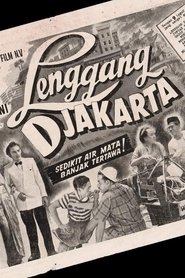 Jakarta experiences a rapid growth after...
Jakarta experiences a rapid growth after...Lenggang Djakarta 1953
Jakarta experiences a rapid growth after Indonesia gains full sovereignty in 1950. The Republic’s capital becomes the city of hope and dreams for people living in rural areas. One of them is Mulyono. He leaves his wife and kids in the village. But Jakarta turns out to be a horrible city and Mulyono has bad luck until he finds work at a gas station. One of his customers is Nani who asks him to work at her father’s office. Soon, they become husband and wife and Mulyana forgets about his family back home.
 Sugiati loves all of her children...
Sugiati loves all of her children...Air Mata Iboe 1941
Sugiati loves all of her children, Achmad, Idris, Sumadi and Supinah. Sumadi receives the most attention as Subagio, his father, often blames him. But Subagio leads a double life as a thief. To defend his father, Sumadi takes the blame for his father’s crime. He is sent to exile for his confession. Subagio feels guilty, becomes ill and finally passes away. After the death of Subagio, the children refuse to take care of Sugiati who ends up in a nursing home. Upon his return from exile, Sumadi is appalled by his siblings’ treatment of their mother and settles the score with his brothers and sister.
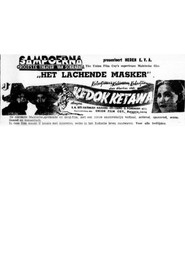 Minarsih Fatimah is rescued from four...
Minarsih Fatimah is rescued from four...Kedok Ketawa 1940
Minarsih (Fatimah) is rescued from four thugs by the painter Basuki (Basoeki Resobowo). They fall in love and begin planning their life together. However, a rich man interested in taking Minarsih to be his wife sends a gang to kidnap her. Basuki is unable to repel them. The Laughing Mask (Oedjang) comes to the rescue. (Soerabaijasch Handelsblad 1940).
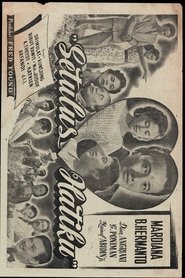 Maryani who loves Hartono her childhood...
Maryani who loves Hartono her childhood...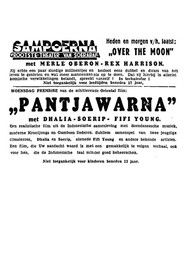 The film featured 12 keroncong hits and...
The film featured 12 keroncong hits and...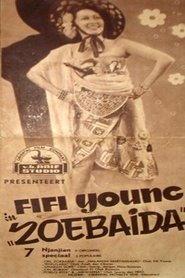 The music score in this film...
The music score in this film...